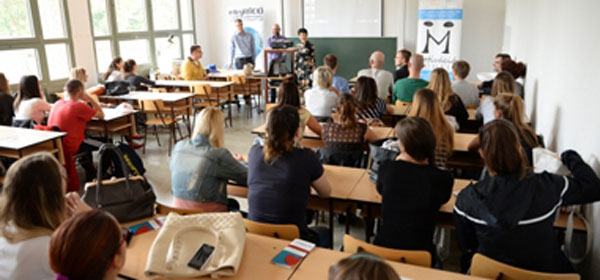Study Halls for Roma Learners

The study halls provide learning support, rich extra-curricular programmes and extra support in other areas if needed. In the study hall pupils receive help with their homework, class work and develop their learning skills and sense of community.
In Hungary, where the education system became highly selective in the 1990s, learning opportunities for disadvantaged and Roma students are limited compared to the majority of students. Schools attended by disadvantaged and Roma students are typically located in remote areas in the northern and north-eastern part of the country. The infrastructural, financial and the human resource conditions of these schools are considered weak.
In the 1990s, an experimental model of organised learning outside the school was established by a few young teachers and lawyers. Their aim was to provide support to disadvantaged and Roma students to prepare them to take the school leaving examination (grade 12) that enables them to progress into higher education.
From 2004 onwards, EU funds were used to establish ’study halls’ in disadvantaged small regions and settlements within the country. The aims of the projects were to ensure better student achievement, decrease the obstacles to learning and strengthen the cultural identity of the students.
The study hall is a community area that is built on local necessities, voluntary participation of young people, operated by a non-governmental organisation, with an independent infrastructure. It provides complex services, focusing on overall personal development, which are otherwise not available for some children and young people living on the social periphery.
Key objectives of the study halls are: improving teacher-student relationships; providing a learning space for disadvantaged pupils; integrating Roma parents into the community; identifying and supporting gifted children; reducing ESL, grade repetition and unemployment; developing social skills for employment; improving cultural life; providing extra-curricular activities for disadvantaged young people; offering employment for low-skilled workers; strengthening links between schools and community; providing training for future teachers; offering guidance and providing meals to students.
Further reading
Additional information
-
Education type:School Education
-
Evidence:N/A
-
Funding source:European Funding
-
Intervention level:Targeted
-
Intervention intensity:Ongoing
-
Participating countries:Hungary
-
Target audience:Government staff / policy makerHead Teacher / PrincipalNot-for-profit / NGO staffTeacher
-
Target audience ISCED:Primary education (ISCED 1)Lower secondary education (ISCED 2)Upper secondary education (ISCED 3)
